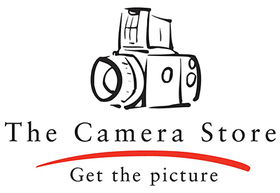UAV and DJI Purchase Terms
Please note that all DJI products are final sale. There are no returns on DJI items, and exchanges will not occur if the unit is DOA. DOA is defined as a brand-new unit that will not turn on, or a brand-new unit that does function properly. DJI insists on handling all DOA and service issues directly. For more information visit: dji.com/support/product
The Camera Store's UAV Return Policy:
All sales of UAVs (unmanned aerial vehicles, drones, and flying cameras) are FINAL and cannot be returned or exchanged to The Camera Store.
Customer Advisory:
Before operating this product, please examine local and federal laws governing air spaces and unmanned aircraft. Details can be found here. You are responsible for being familiar with the Transport Canada rules for operating your UAV (unmanned aerial vehicle) or "flying camera." Please be advised that if you operate your UAV for any reason other than recreation enjoyment, you will require a Special Flight Operation Certificate, per Canadian Aviation Regulations. For more information, please get in touch with your local Transport Canada office and visit their web page on Unmanned Air Vehicles.
Liability Disclaimer:
The Camera Store is not responsible for any damage, injury, or warranty claim that occurs with or in connection with any flying cameras purchased. UAV systems require careful training and preparation to be used safely. Do not use a UAV if you are not properly trained or qualified or are unsure of your equipment. The Camera Store does not assume responsibility for any loss, damage, or injury due to using or misusing a flying camera. Please be aware that the purchaser/operator assumes all liability and is responsible for:
1. Damages to property and persons from the equipment
2. Improper use of the equipment
3. Any indirect or consequential damage related to the use of a UAV
4. Ensuring proper configuration, including Wi-Fi configuration and maintenance.
5. Complying to all local and federal laws that may regulate the use of flying cameras in your area
It is highly recommended that the purchaser and/or operator have proper liability insurance coverage at all times if your use of the UAV damages property or hurts a person or other living creature.
The Camera Store's UAV Warranty Information:
DJI products have a 1-year manufacturer's warranty, except propellers, which are not covered under warranty. The manufacturer's warranty only covers the manufacturer's defects.
Frequently Asked Questions:
Can I return my DJI product if it is not functioning properly?
All sales of UAVs (unmanned aerial vehicles, drones, and flying cameras) are FINAL and cannot be returned or exchanged to The Camera Store, as DJI insists on handling all DOA and service issues directly. For more information visit: dji.com/support/product
What should I do before my first flight?
Read all the literature provided and go to the manufacturer's website for 'out of the box set up' and 'first flight' instructions. Check that all electrical connections, rotors, screws, nuts, and bolts are all connected properly. We highly recommend the use of propeller guards. Check for any firmware updates before any planned flight.
What is the first flight I should take?
The first flights should be training flights to familiarize the pilot with the controls. DJI supplies an exercise book that provides a number of exercises. These should be conducted in open areas, away from obstacles and people.
Can I fly my DJI product by myself?
For recreational purposes, Transport Canada requires that the UAV is always in sight and flies no higher than 400m. Keep in mind the pilot will also be checking their monitor, so it is advisable to have a second person who can keep an eye on the UAV at all times.
Can I fly my UAV indoors?
Flying indoors can be extremely difficult and even dangerous. Your UAV may not be able to get a reliable GPS link, and many UAVs do not have obstacle detection and avoidance.
What do I need for a safe flight?
Make sure that the UAV has GPS connectivity and has locked on to multiple satellites. Be aware that flying near structures such as buildings and trees can interfere with the satellite signal. Also be aware that many UAVs do not have obstacle detection and avoidance, and can easily crash into these structures. Always have eyes on your UAV.
Who is responsible if my UAV crashes or gets lost?
The pilot/operator is 100% responsible for all damages and loss of the unit.


